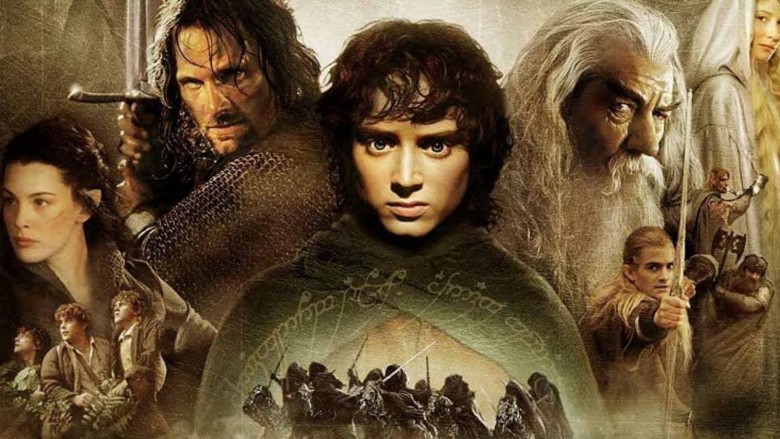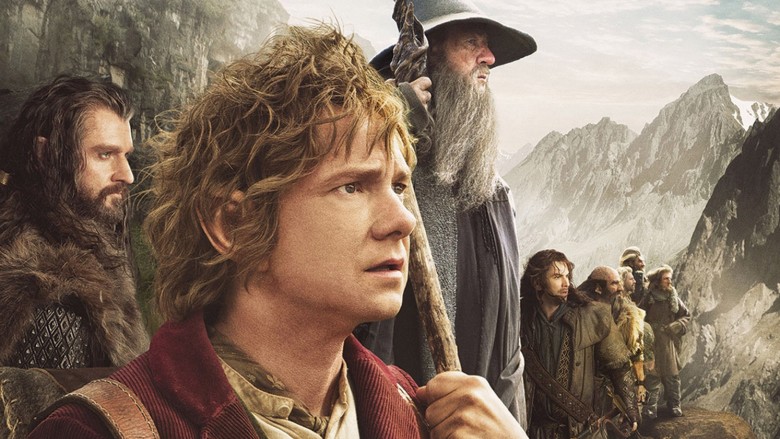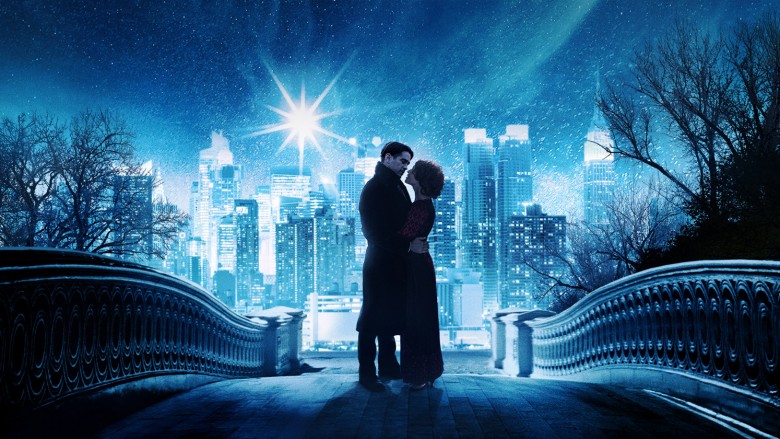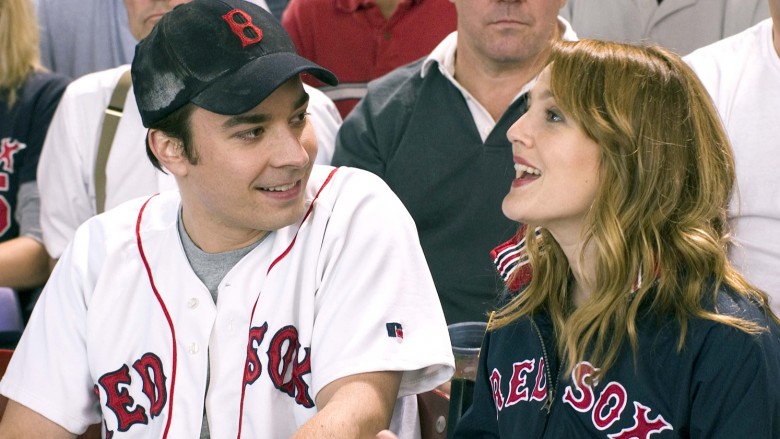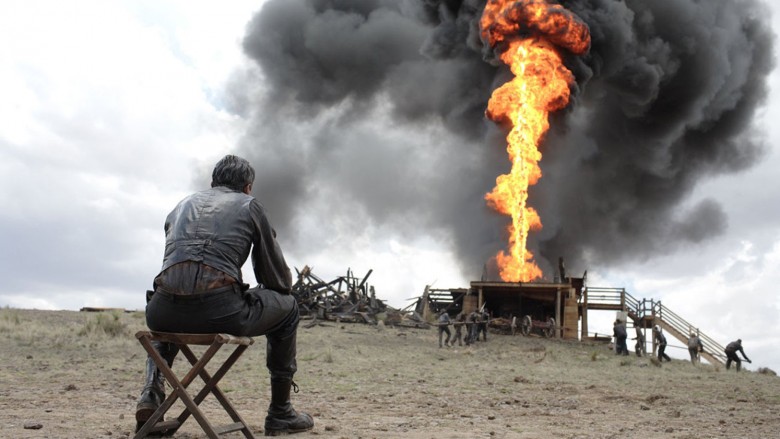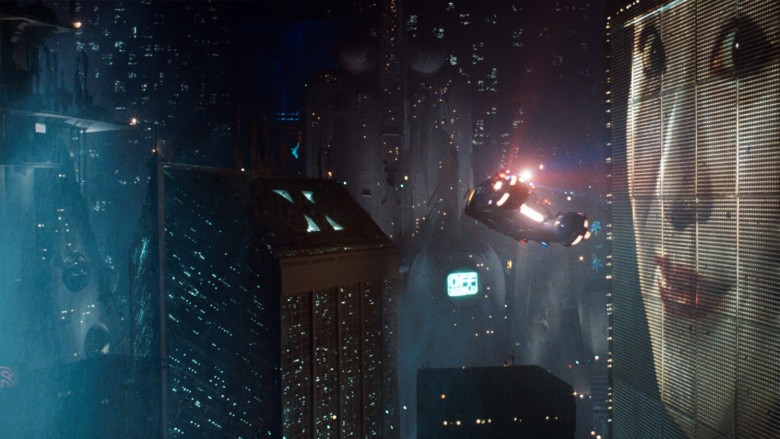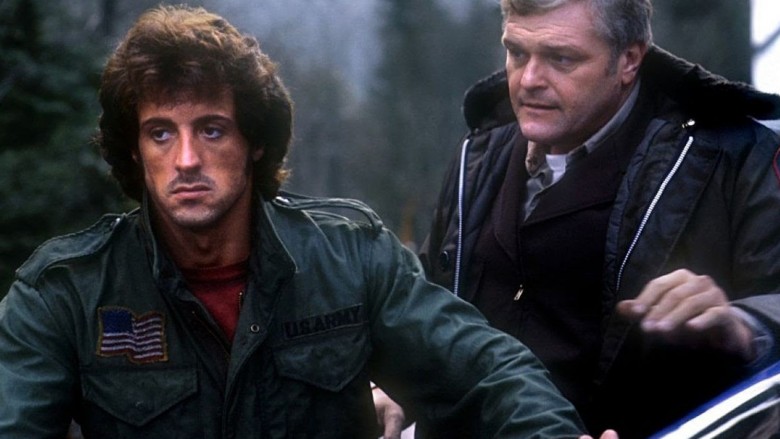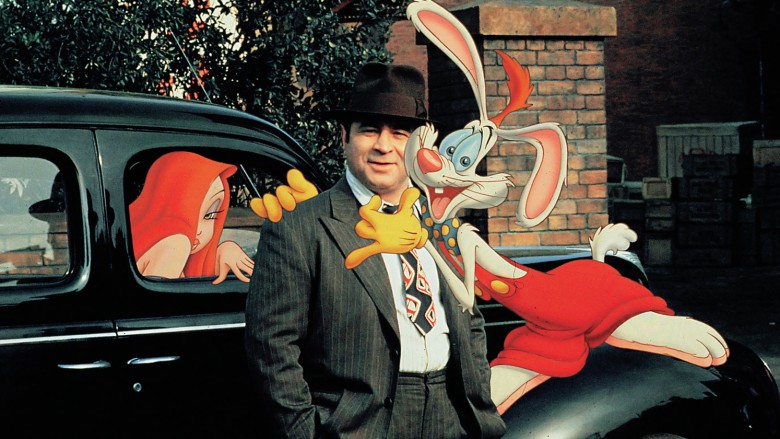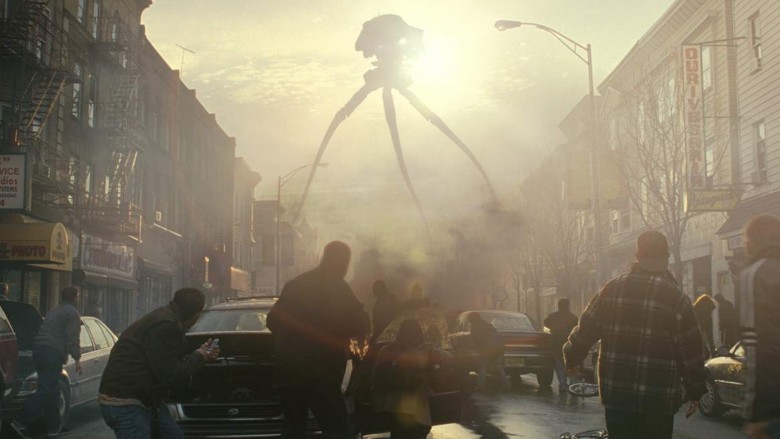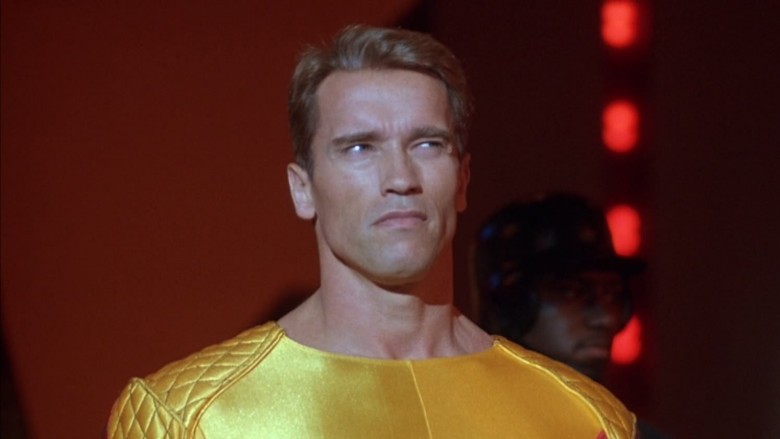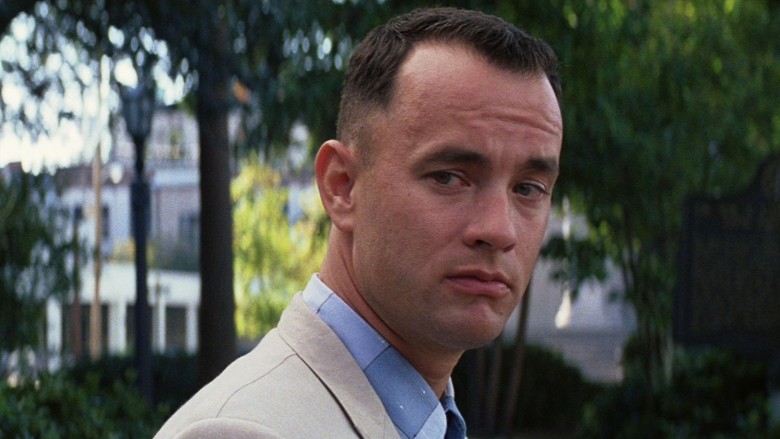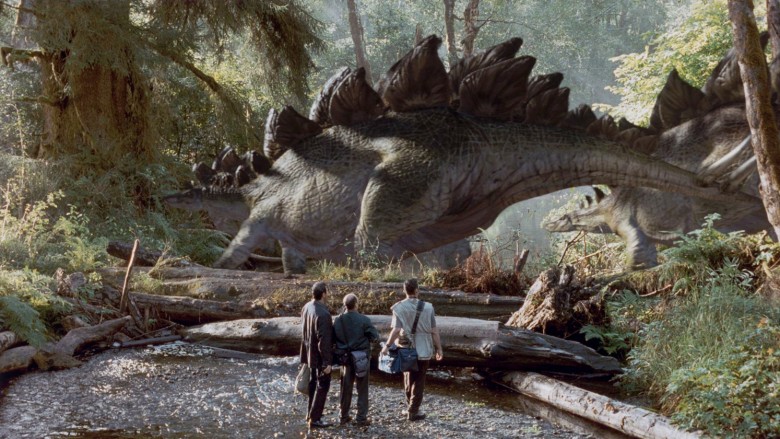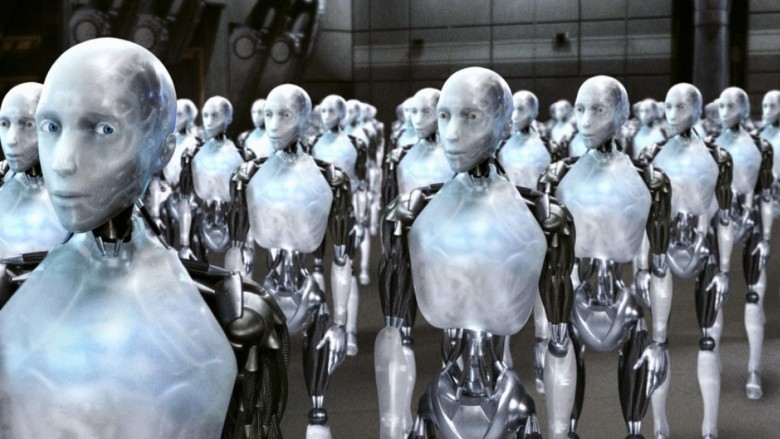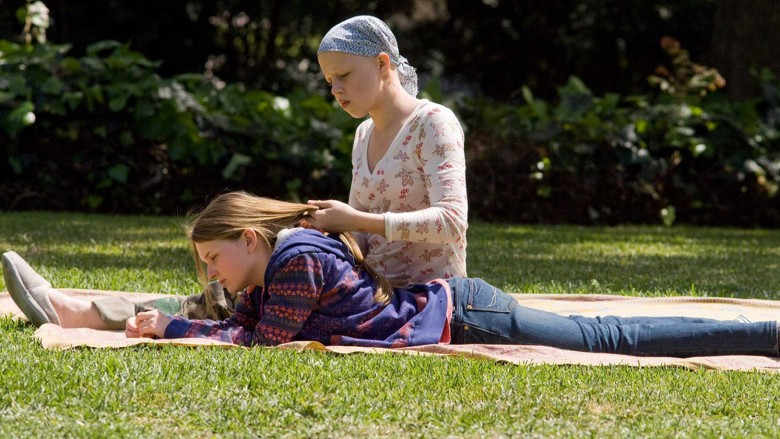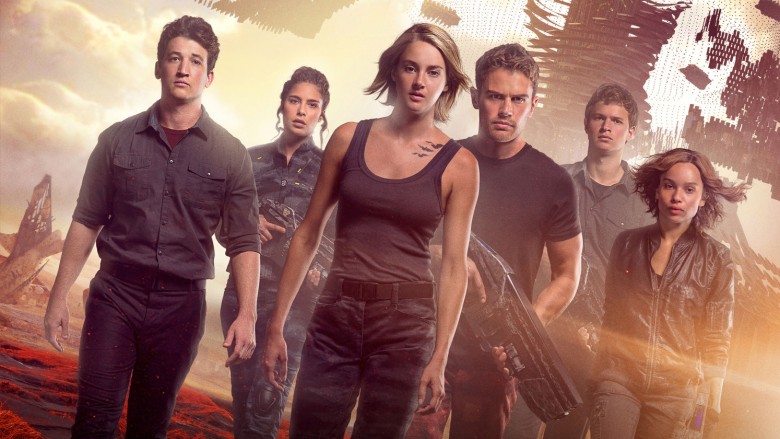Movies That Ignored The Books They Were Based On
Making a movie is never easy, but when you're a filmmaker in charge of an adaptation of a popular book, the job gets even harder: not only must you appeal to cinemagoers, but you also have a legion of book-reading fans to contend with and keep happy.
Over the years, filmmakers have struggled with this issue, trying to strike the right balance between making a faithful adaptation or one that's just loosely "based on" a book or series. Let's take a look at some of the films that strayed the furthest afield from their original source material.
The Lord of the Rings trilogy
Despite its popularity, Peter Jackson's Lord of the Rings trilogy of films takes great liberties with J.R.R. Tolkien's books. Frodo's age was changed for the movies; at the start of The Fellowship of the Ring, he should have been celebrating his 33rd birthday. In the film, Gandalf disappears for a time, but it only seems that months or maybe a year at most has passed before he returns to Hobbiton. In the books, we learn that Gandalf is actually gone for 17 years searching for the story of the ring, and Frodo sets forth from the Shire at age 50.
The movies also portray the Battle of Helm's Deep as very lopsided: 300 or so versus 10,000 or more. In the books, the elves don't send a force to join the battle, Haldir doesn't die, and it's more evenly matched with thousands of Rohan's warriors fighting against the forces of Saruman. Additionally, Arwen never saves Frodo from the wraiths in the novel—her role is much smaller in the series, and another elf named Glorfindel takes Frodo the rest of the way to Rivendell.
One favorite character of Tolkien readers, Tom Bombadil, was left completely out of the movies—which is unfortunate given how absolutely cool and enigmatic Bombadil is in the books. Finally, we also miss the epilogue showing Saruman's fate. In the books, he survives being cast out from Orthanc and makes his way to the Shire, where he takes control of the province and does all manner of nasty things—until Frodo, Sam, Merry, and Pippin return home and cast him out for good.
The Hobbit trilogy
Like the Lord of the Rings movies, much was changed for Jackson's big-screen adaptations of Tolkien's Hobbit novel. The divergence from the book is huge, to be frank, but here are some of the largest changes. To start with, one of the main protagonists of the films—the pale orc Azog—is actually dead in the novels, not just rumored to be dead. The movies also added two characters (and a subsequent weird love triangle): Legolas doesn't appear in The Hobbit novel, and female elf badass Tauriel doesn't exist in any of Tolkien's lore.
In one of the funniest scenes from the Hobbit films, Bilbo saves the dwarves from the clutches of three very stupid trolls. Unfortunately, Bilbo wasn't quite as heroic in the books. He was pretty much a bystander once the dwarves were captured, and Gandalf arrived and tricked the trolls into arguing with each other until the sun came up. The river barrel scene was also spiced up for the movies. In the books, the barrels are sealed and float peacefully downstream, with no crazy orc pursuit or whitewater axe flinging involved.This movie-only battle also has huge repercussions later—Kili is never wounded in the books, so the company never splits at Lake Town and arrives together at the Lonely Mountain. Finally, the dwarves don't have an epic battle with Smaug within the mountain—in the book, Smaug discovers their ponies and realizes they came from Lake Town, so he flies off pretty much immediately to meet his doom at the hands of Bard (who was never a bargeman.)
Winter's Tale
Winter's Tale is a complicated 700-page novel, one with many features that would be next-to-impossible to actually translate to the big screen, so it shouldn't be surprising that many changes were made for the film. In fact, a large amount of Hardesty Marratta's storyline is completely omitted.
The magical elements of the story aren't given the explanation they deserve in the movie, and so most audiences probably don't have any idea just how evil Will Smith's character is, or why there's suddenly a flying horse helping the protagonist. Peter's knack for fixing machines is shown briefly onscreen, but viewers never learn why this skill is important as in the books. Finally, the love story between Peter and Beverly is paced so strangely in the movie—rushed at times and too slow in others—that their entire romance comes off as unrealistic, instead of the natural progression of the novel.
Fever Pitch
Based on a sports fan's bestselling memoir, Fever Pitch was the second of two adaptations made from the autobiographical book. While the first one (released in 1997 in the UK) was relatively faithful to the book, if you've only seen the 2005 American release of Fever Pitch, you might assume that the memoir was about the recollections of a lifelong Red Sox fan. Actually, author Nick Hornby's book was about his life and his experiences as a diehard Arsenal fan. Wait, who are the Arsenal? Oh, just one of the most popular (and prosperous) English football clubs in existence.
That's right, this Jimmy Fallon rom-com about a baseball fanatic was actually "loosely" based on the recollections of a soccer fan. Apparently, 20th Century Fox felt a movie about soccer wouldn't play well in America, so the decision was made to switch the screenplay. They also added a romance angle and female lead to the movie, whereas in the book, there were no female characters at all.
By coincidence, the Farrelly Brothers (who directed the adaptation) got more than they bargained for when they started filming during the 2004 Red Sox season, which culminated in the team's first World Series championship in 86 years. The directors ended up having to rewrite parts of the script to include the Sox' amazing playoff run as part of the plot.
There Will Be Blood
On its surface, There Will Be Blood is based on Upton Sinclair's novel Oil! Both are set in the early 1900s, both focus on the oil boom, and both feature a father and son. Other than those three similarities, most of the award-winning There Will Be Blood diverges widely from Sinclair's source material. According to director Paul Thomas Anderson, they only used the first 150 pages of the book (which is over 500 pages long) for this adaptation, while adding inspiration from the true-life story of oil baron Edward Doheny. Where the book primarily follows the son's story and contains a lot of political and social satire, the movie focuses on the ruthless father and the lengths he goes to get his way.
Blade Runner
There are several different versions and cuts of the 1982 classic film Blade Runner, and the story changes slightly depending on which version you watch. Regardless, none of the adaptations match up exactly with the original Philip K. Dick novel Do Androids Dream of Electric Sheep? Some core points are the same: in both the movie and the book, Rick Deckard is a bounty hunter, he tracks down androids, and it may sometimes be very hard to detect these androids. But many plot elements from Dick's novel are completely missing in the movie.
In the book, Deckard is married, and he and his wife's fondest wish is to own a real sheep instead of the robot sheep they currently have. He takes the bounty contract in an effort to earn enough money to purchase a "real" pet. The film barely touches on Deckard's own existential crisis, and we never learn about the strange religious cult he and his wife belong to, or the loss of self-identity that's central to their religion. While the Blade Runner movie certainly stands on its own without these plot points, it certainly would be interesting to see some of this cut material included in the upcoming sequel, Blade Runner: 2049.
First Blood
One of the most successful action movies of all time almost ended very differently. For First Blood, the filmmakers used early audience feedback to make a decision that would change the course of the franchise. In the standalone novel by David Morrell, Rambo kills a lot of innocent people during a flashback incident, and later dies after forcing captain Sam Trautman to shoot him. Apparently, test audiences hated this ending, and so Sylvester Stallone—who helped write the screenplay—had a new ending filmed in which Rambo survives and turns himself into the authorities. If it weren't for this fateful decision, the film may not have become as successful as it did, and we wouldn't have any of the Rambo sequels.
Who Framed Roger Rabbit?
While many Gen X and millennial adults fondly remember Who Framed Roger Rabbit?, most of them probably don't realize that the movie bears little resemblance to the book it's based on. In Who Censored Roger Rabbit by Gary K. Wolf, all your favorite characters are present—including Jessica, Roger and Eddie Valiant—but the story takes a much darker turn. Roger hires a private detective to find out why a Toontown agent has reneged on his promise to give him his own comic book strip. Not much later, Roger himself turns up dead and Jessica is framed for the murder. While definitely an entertaining read, it isn't exactly the off-color but still family-friendly plot that we saw in the movie.
War of the Worlds
H.G. Wells' classic novel War of the Worlds has made the jump to the big screen twice—first in 1953, and again in 2005. While both movies kept important elements, like the tripod alien ships and the bacteria that ends up killing the aliens, neither movie is terribly close to the book. Instead of using the late 1800s time period from Wells's book—and completely awesome battles with 19th-century battleships—both movies chose to use a contemporary setting. Additionally, the main storylines of both movies are only loosely based on the book, which centers on the narrator's dangerous journey to reunite with his wife in London.
The Running Man
While many consider The Running Man to be a classic of '80s cinema, it hardly resembles the novel that it's based on. For most of the movie, Arnold Schwarzenegger spends his time trapped inside an arena, being chased by crazy American Gladiator rejects. The story in the book, written by Richard Bachman (a.k.a. Stephen King) is much more harrowing. The main character, Ben Richards is a scrawny bookish man, trying to earn money for lifesaving medicine for his daughter. He's turned loose in the world, but must keep one step ahead of the bounty hunters that are chasing him.
Although he has the freedom to hide anywhere in the world, the odds are stacked against him. Every day, he must take video footage of his current location and send it back to the TV studio. This gives the hunters clues, which are added to the thousands of tips called in by viewers after the cash bounty. Eventually, Richards gets tired of the corrupt nature of the game (and the network that makes it), and hijacks a plane to fly it into the network's skyscraper. Given the events of September 11th, 2001, it seems unlikely that The Running Man will ever be remade with the original ending, but we'd love to see a reboot that stays more faithful to the original premise.
Forrest Gump
In the film adaptation of Forrest Gump, the filmmakers decided to focus mostly on the love story between Jenny and Forrest, and go for a fairly light-hearted take on the original novel. In the book, Forrest is much more cynical, aloof, and foul-mouthed. Additionally, the movie's ending has Forrest raising his and Jenny's child alone after her death, while in the novel Jenny survives, but marries another man and raises a child with him instead.
Additionally, the book's Forrest does more "bad" stuff—fans of the movie reading Winston Groom's novel for the first time might be surprised by how much explicit sex and drug use Forrest gets up to, especially considering how "innocent" he is portrayed to be in the film.
The Lost World: Jurassic Park
After the success of the first Jurassic Park film, Michael Crichton wrote a follow-up novel, The Lost World. Unfortunately, instead of using Crichton's work for the sequel's adaptation, the director decided to scrap most of the book's material in favor of some pretty bizarre plot lines, like a finale including a T-rex car chase through San Diego, a villain that didn't exist in the book, and a fictional girlfriend and daughter for Jeff Goldblum's character, Dr. Ian Malcolm. To be fair, the novel itself wasn't exactly lofty reading material—but a rival bioscience firm trying to steal the dinosaur's genetic secrets is at least more plausible than the movie's made-up suggestion of a mainland dinosaur theme park in San Diego.
I, Robot
If you're a fan of classic sci-fi, you may have thought that the adaptation of I, Robot was going to be based on the collection of short stories of the same name by Isaac Asimov. If so, you were probably sadly disappointed when you went to the theaters and saw a Will Smith summer blockbuster instead.
While there's no doubt that the film version was entertaining, the movie's script bears little resemblance to the original short stories. For the most part the screenplay is entirely original—the only elements recognizable from Asimov's writings are humans and robots coexisting, a handful of character names, and Asimov's "Three Laws of Robotics."
My Sister's Keeper
In this heart-rending story of two teen sisters by Jodi Picoult, Kate is dying of leukemia, and her younger sister Anna—who was born specifically to provide her with organ donations—must face the difficult choice of giving up one of her kidneys. In both the book and the movie, Anna files a medical emancipation suit at her older sister's urging, so that Anna will have some measure of control over the situation. Anna wins the case in both versions, but the storylines diverge from there—in the book, Anna gets in a car accident on the way home from the courthouse and dies; her kidney is harvested after her death and saves Kate's life.
For the film, the filmmakers decided to reverse the roles. Kate refuses to accept Anna's kidney, and passes away after succumbing to kidney failure. As director Nick Cassavetes explained, "Going and visiting people in the hospital, this story repeated over and over and over again. And in reality, none of these stories ended like the book did."
The Divergent Series: Allegiant
While none of the Divergent movies have been particularly faithful to the novels thus far, the third entry in the franchise, Allegiant, is probably the most egregious offender when it comes to ignoring the books. In fact, some of these changes actually set up a potentially major plot alteration for the final entry in the series, Ascendant.
In both the novel and the film, David hatches a plan to wipe the memories of Chicago inhabitants with a memory serum. In the book, Tris formulates a plan to turn the memory serum against the Bureau members instead, and when she sets her plan in motion, she's shot and killed by David. The movie goes a much different route: Tris and her cohorts stop the release of the memory gas in the nick of time, and Tris transmits a message to the city, which reveals the existence of the experiment and the Bureau.
In the last scene, we see David standing behind Tris, staring at her angrily. Despite his death stare, Tris is still very much alive in the films. With one more movie still to be released, we have to wonder if the filmmakers will stay faithful to the books and have David murder Tris, or if they'll cave to fan sentiment and let her survive.

